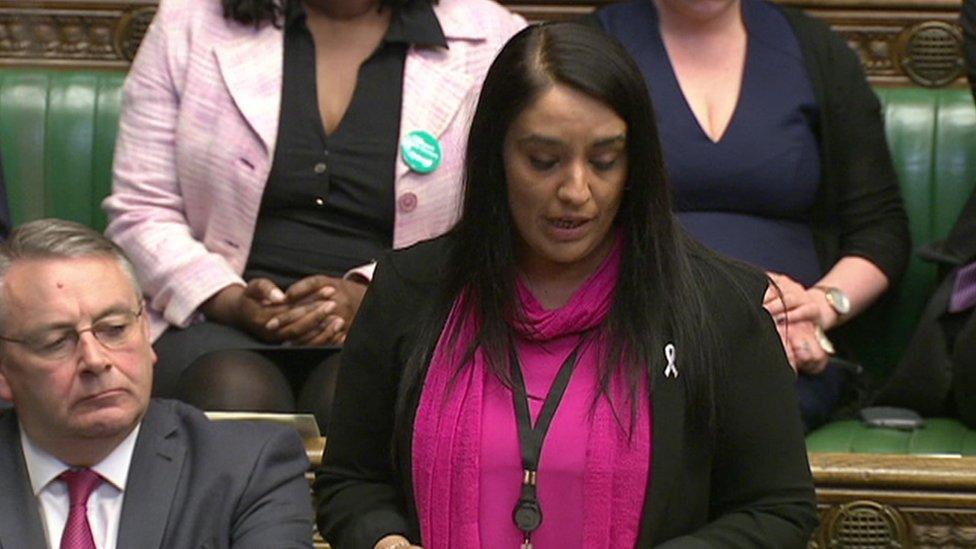Len McCluskey: Anti-Semitism row used to undermine Corbyn
- Published
Jeremy Corbyn: Labour stand "absolutely against anti-Semitism in any form"
A row about anti-Semitism is being used by Jeremy Corbyn's opponents within Labour to undermine his leadership, Unite chief Len McCluskey says.
Mr McCluskey, whose union is Labour's biggest donor, attacked a "cynical attempt to manipulate anti-Semitism for political aims".
Another Corbyn ally, Diane Abbott, said party members had been "smeared".
It comes after controversial comments by ex-mayor Ken Livingstone and MP Naz Shah saw both suspended from the party.
Mr Corbyn told a May Day rally in London his party stood "absolutely against anti-Semitism in any form".
Mr Livingstone, the former London mayor, was suspended from the party after saying Adolf Hitler had supported Zionism in the 1930s "before he went mad and ended up killing six million Jews".
Speaking to John Pienaar on BBC Radio 5 live, Mr McCluskey said Labour had been right to suspend Mr Livingstone for his "bizarre" comments.
But he described the wider controversy as "mood music" being exploited by political enemies of Mr Corbyn.
The Unite chief said the row had been "got up" by the right-wing press, "aided and abetted by those Labour MPs who wake up and think what stick can we beat Jeremy with?"

Analysis
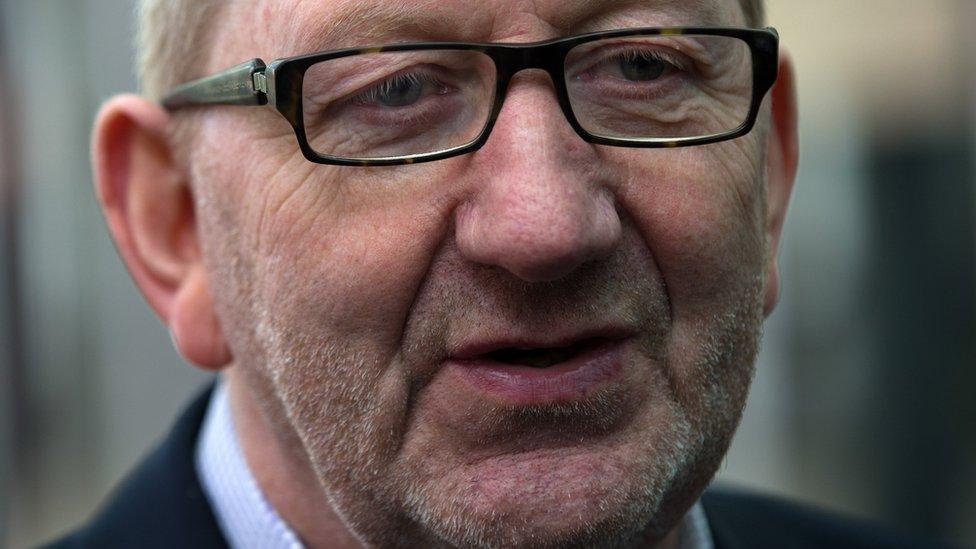
Len McCluskey's union is Labour's biggest donor
By Iain Watson, political correspondent, BBC News
Len McCluskey's comments are significant.
He is in charge of the union which donates the most money to Labour. And he sees the row over anti-Semitism as part of wider attempts to undermine Jeremy Corbyn's leadership - not just from the "right wing press", as he calls it, but from Labour MPs.
He knows some prominent party members are prepared to blame their own party leadership for what they expect to be poor election results this week.
So he is firing a shot across their bows to dissuade any of them from launching a leadership challenge.
The nature of the challenge is far from certain - Jeremy Corbyn's opponents have been described by one insider as "rival militias" who can't agree on an alternative, or on the timing of an assault.
But it would be wrong entirely to conflate the anti-Semitism controversy with anti-Corbyn plotting.
The anger some MPs feel over the handling of the issue isn't synthetic, and they fear it has harmed the party's reputation and not just that of the leader.

Diane Abbott defends Labour over anti-Semitism row
Mr McCluskey said he did not think there would be a formal leadership challenge to Mr Corbyn, but added that any MP "stupid enough to try" would have to "be accountable for their actions".
Speaking on the BBC's Andrew Marr Show, Ms Abbott, the shadow international development secretary, said Mr Livingstone's remarks had been "extremely offensive", but defended the party's handling of the row.
She said there had been 12 reported cases of alleged anti-Semitism within the party since Mr Corbyn became leader, and each had led to a suspension - including Mr Livingstone who was suspended "within hours".
"It's something of a smear against ordinary members to say the party has a problem with anti-Semitism," she said.
But Labour's candidate for Mayor of London, Sadiq Khan, warned the row engulfing his party had harmed his chances of being elected.
Mr Khan told the Observer, external Mr Livingstone's comments had made it "more difficult" for Jewish voters to support him in next week's election.
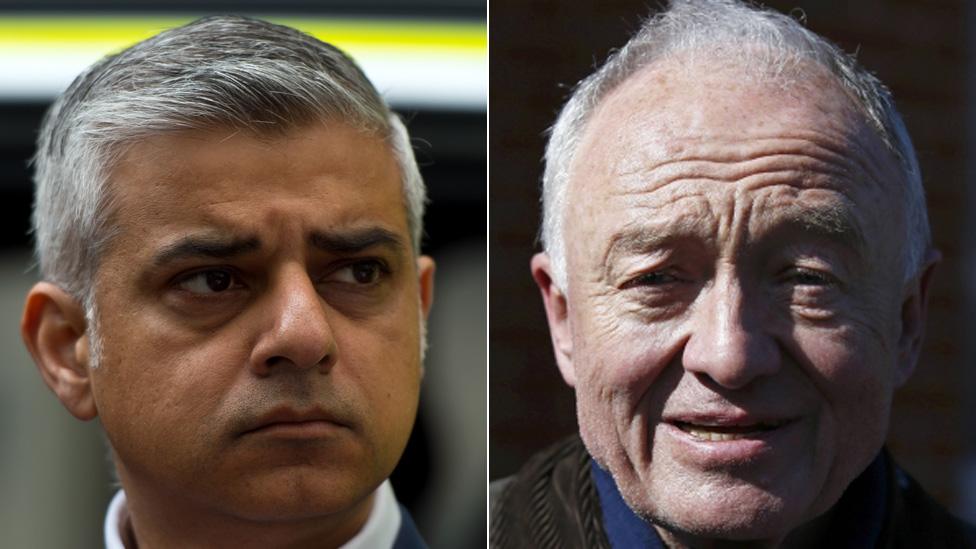
Labour's candidate for London mayor Sadiq Khan (left) said comments made by former mayor Ken Livingstone (right) had harmed his campaign
Labour is holding an independent inquiry into anti-Semitism and other forms of racism in its ranks - but the leadership's response to the allegations has been criticised by some Labour MPs.
Speaking on the BBC's Sunday Politics, ex-minister Ben Bradshaw told the Sunday Politics members were "furious" at how the situation had been handled, and Labour MP Louise Ellman said the response had been "much too slow".
Ms Ellman, who is Jewish, said she had been subject to anti-Semitic abuse herself at a meeting of the local party. A complaint is being investigated.
Speaking on BBC Radio 4's The World this Weekend, Labour donor Michael Foster, who gave the party £400,000 before the general election where he also stood as a candidate, said some members of the party's leadership "vilify Jews as part of their political shtick".
He called for the inquiry, led by former Liberty director Shami Chakrabarti, to be widened, and said he would not donate to the party nationally because of the leadership's approach.
Senior figures within Israeli politics also expressed their concerns about the party.
The new Israeli ambassador to London said elements of left-wing parties were "deluding themselves" if they presumed there was no problem with anti-Semitism.
Mark Regev said comments in the last few weeks had crossed from criticism of Israeli government policies to "demonising and a vilification of" the Jewish state and perpetuating racist stereotypes.
Israel's Labour leader Isaac Herzog also said he had been "appalled and outraged by the recent examples of anti-Semitism by senior Labour Party officials".
Mr Livingstone's comments were "horrific and unthinkable for a British politician in the 21st Century", he added.
'Telling the truth'
The anti-Semitism row erupted last week when Bradford West MP Naz Shah was suspended after sharing a Facebook post suggesting Israel should be moved to America.
Mr Livingstone defended her in a BBC interview, saying that she was not anti-Semitic.
He went on to say: "When Hitler won his election in 1932 his policy then was that Jews should be moved to Israel."
Mr Livingstone was subsequently suspended but stood by his comments, saying he was "not sorry for telling the truth".
- Published30 April 2016
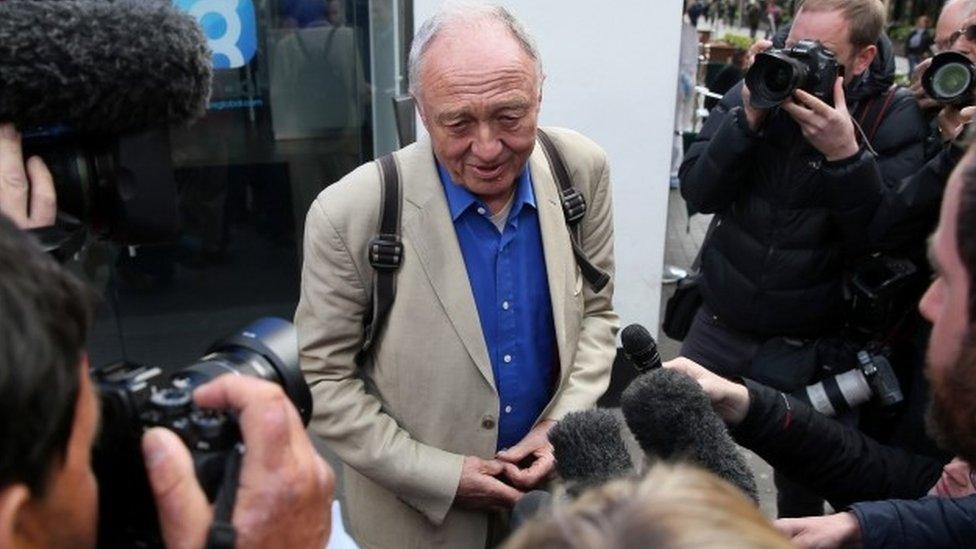
- Published30 April 2016
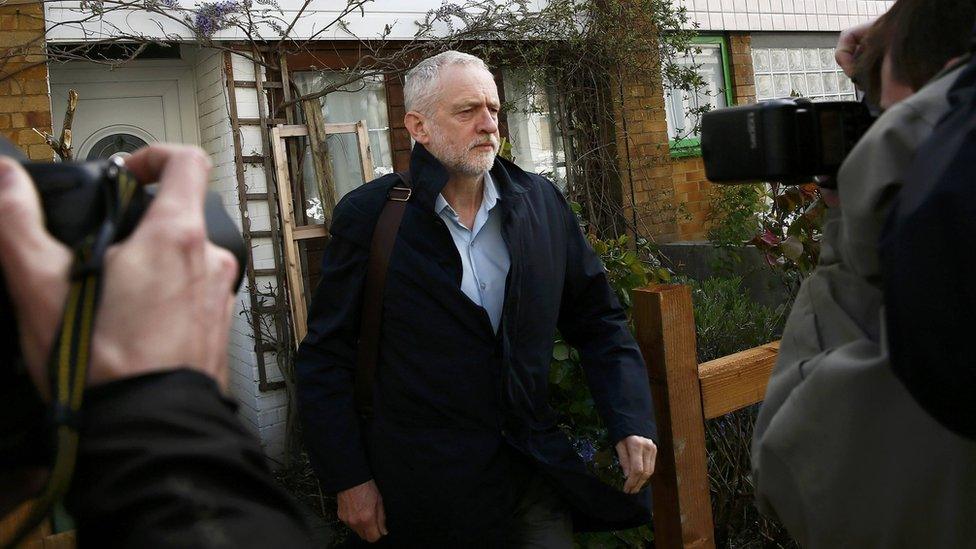
- Published28 April 2016
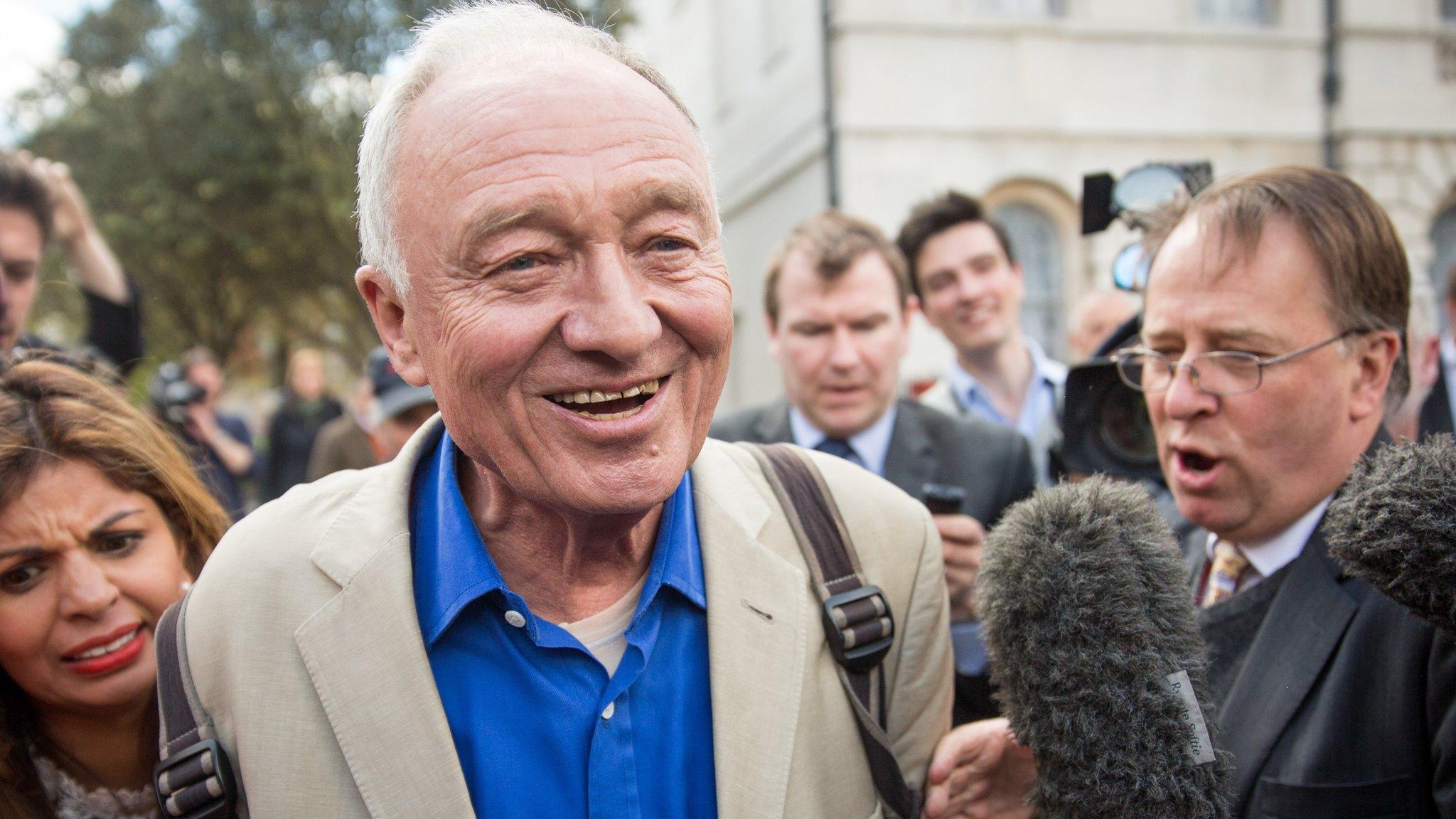
- Published27 April 2016
